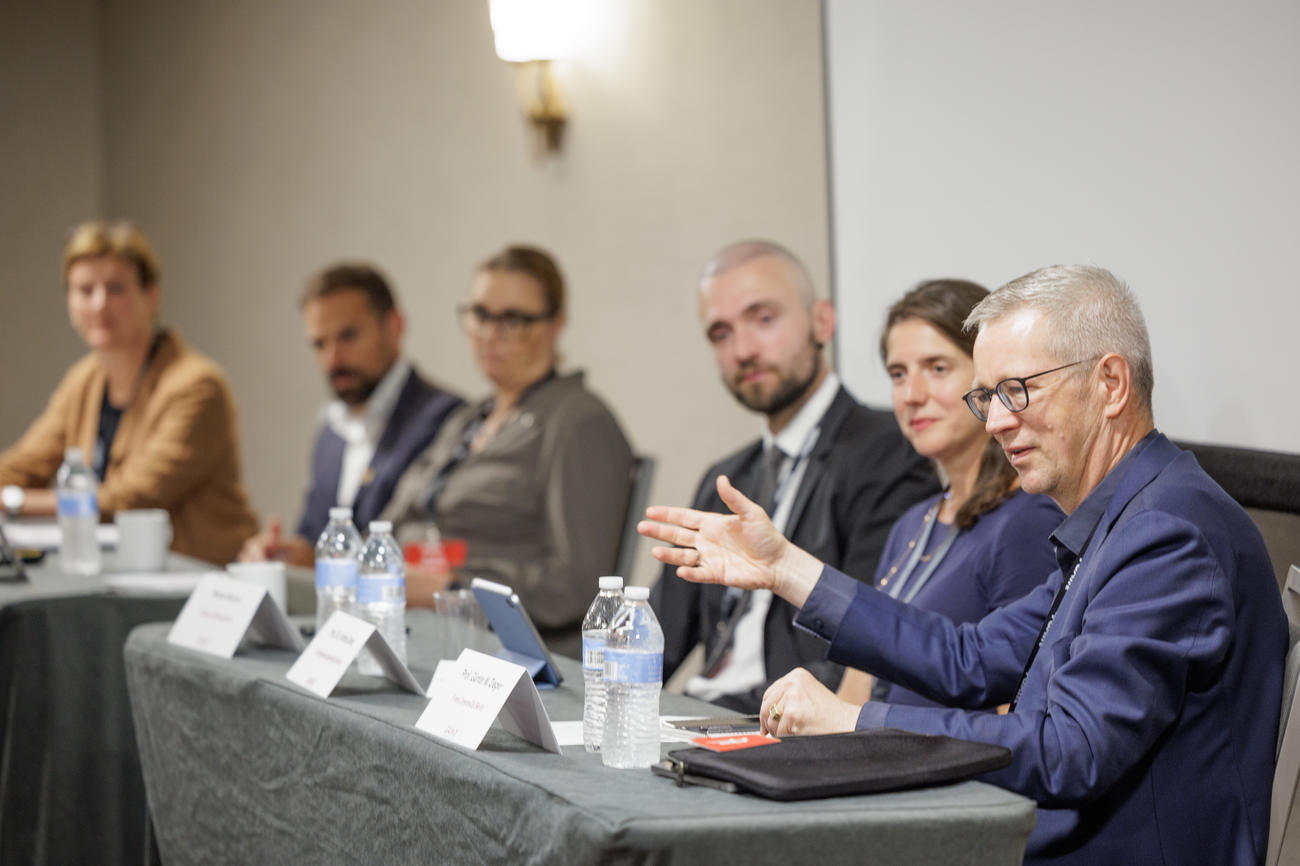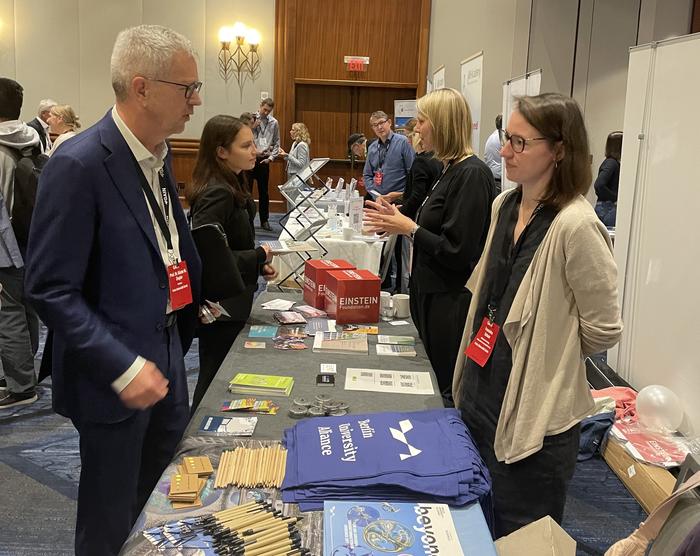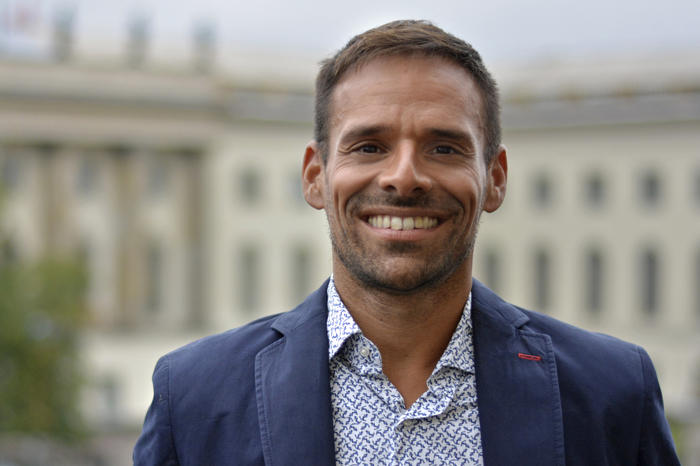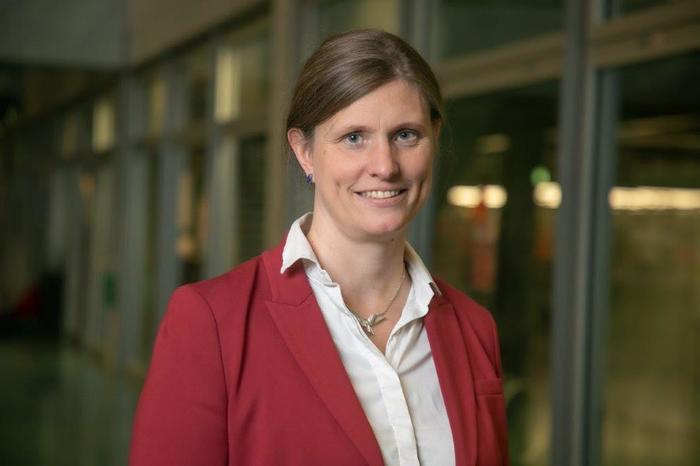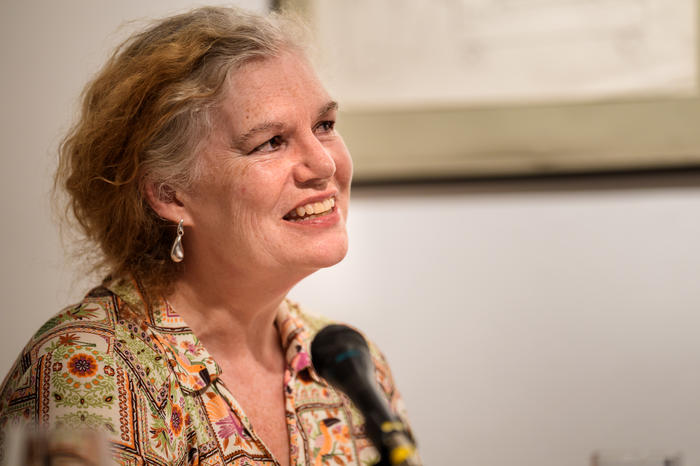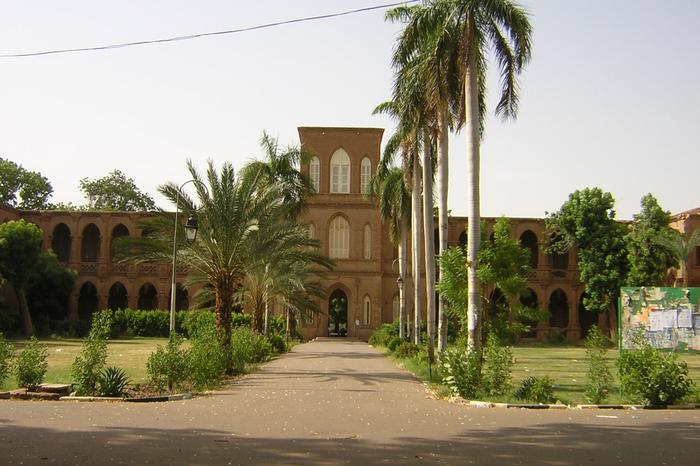Global Scholars' Gateway Berlin
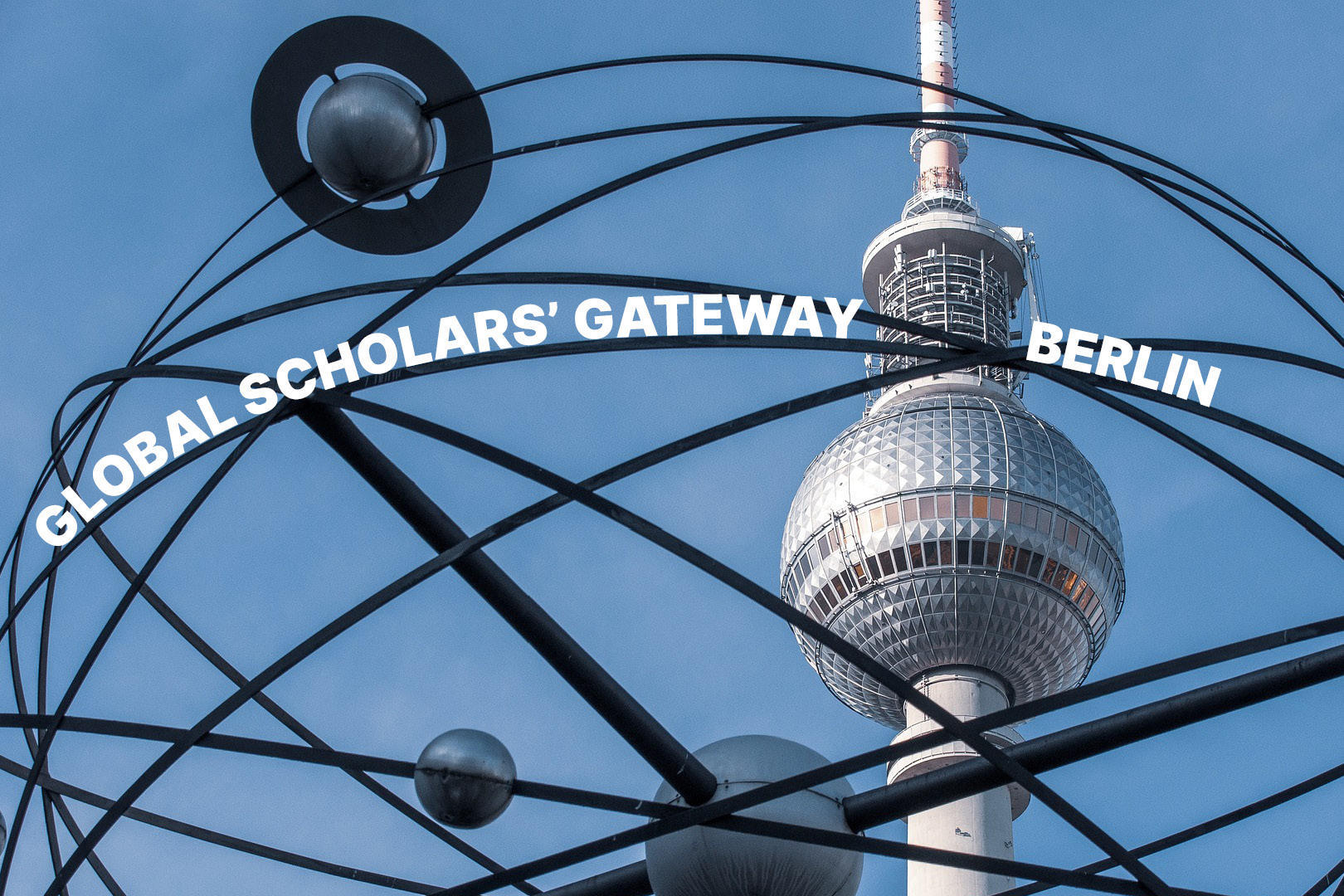
Berlin is not only Germany’s most popular startup location according to the Startup-Barometer, but also stands out in international comparison: the Resonance Report ranks the city among the top three in Europe for quality of life, economic dynamism, and international appeal. In addition, Berlin is listed in the fDi Top Ten of Europe’s most future-oriented metropolitan areas – combining research opportunities, networks, and quality of life uniquely.
The Global Scholars' Gateway Berlin serves as an invitation to all researchers who wish to pursue their academic careers in a free, diverse, and innovation-driven environment—and to explore Berlin as a starting point for internationally visible research.
Discover the Global Scholars' Gateway Berlin
Boston, GAIN & Berlin: Why It’s Worth Attending Every Year
Once again this year, Günter M. Ziegler represented the Berlin University Alliance as its spokesperson and President of Freie Universität Berlin at the annual meeting of the German Academic International Network (GAIN) in Boston.
Anyone who has walked through the halls of GAIN in Boston will immediately recognize the atmosphere: a mix between a career fair and the feeling of meeting old friends and colleagues—all united by similar interests and goals. Between panels, the Science Slam, and tightly scheduled one-on-one meetings, something is created within hours that emails alone cannot achieve: trust, focused exchange, and a clear message—“Berlin and Germany welcome everyone!”
GAIN is the largest German-speaking career fair for science in North America, bringing together postdocs and early-career researchers with universities, research organizations, and ministries. It creates networks that open new opportunities.
As spokesperson for the Berlin University Alliance and President of Freie Universität Berlin, I regularly attend with colleagues from Berlin’s university leadership and the Senate Department for Higher Education and Research, Health, and Long-Term Care. We are not there only to “recruit”—we listen: What topics matter to excellent young researchers here? What conditions do they need to take their next career step in Germany—ideally in Berlin?
At the same time, we are deeply engaged in the political discourse. GAIN has sometimes been critically described as a “class trip of German academia.” And that is true—but it is precisely what makes it valuable. The discussions go beyond the situation in the U.S., focusing as well on how to support and defend science in Germany. These conversations took place not only among university leadership and non-university institutions but also in various groups and one-on-one exchanges with State Secretary Rolf-Dieter Jungk from the Ministry of Research and Space, members of the Bundestag’s Science Committee, and the presidents of German Research Foundation (DFG), German Academic Exchange Service (DAAD), and the Humboldt Foundation.
And in between: four ministers, including Berlin’s Senator for Science Ina Czyborra, the chair of the Conference of Science Ministers Bettina Martin, and Falko Mohrs from Lower Saxony—all of them open to listening and engaging in substantive discussions.
This year, my visit was shaped by…
… a joint Berlin presence.
The fact that the BUA universities shared one table and a joint appearance at the fair was a real strength—joined by the Berlin Institute of Health and the Einstein Foundation, and with the University of Potsdam nearby. Only the Federal Institute for Materials Research and Testing, BAM, representing the powerful BR50 non-university research institutes, was a little further away—although it too stands for the integrated Berlin research area.
… matching instead of marketing slogans.
The strongest conversations are those where career paths become concrete: outstanding research topics in Berlin and the people to connect with, transparency in tenure-track, lab facilities and infrastructure for excellent research, dual-career opportunities, visas as well as childcare questions—and very practically: When can I start? What can I apply for? Who supports the transition? That is exactly what GAIN is designed for: dense information, high-quality contacts, and quick follow-up opportunities.
… Berlin as a capital with strength in collaboration.
As the Berlin University Alliance—comprising FU, HU, TU, and Charité—we pool our strengths: from cutting-edge research to clearly structured career paths to direct links with clinical practice. The Alliance, with its five Clusters of Excellence spanning a wide scientific spectrum, from global order (SCRIPTS) to immunology (ImmunoPreCept), is in high demand and underscores how Berlin is evolving into a leading and sustainably growing hub for science and innovation.
… networks that extend beyond the fair itself.
GAIN works because DFG, DAAD, and the Humboldt Foundation join forces—and because the community sustains it: alumni, principal investigators (PIs), deans, and research administration teams. This makes the conversations substantive, solution-oriented, and connects the people who, at different levels, support researchers relocating to Berlin universities and help shape the framework for such a move.
What do we take back to Berlin?
Faster bridges between Boston and Berlin: clear contact points for applications, such as our recently launched Global Scholars’ Gateway (see infobox above), closer collaboration with relevant administrations and ministries, and also necessary mentoring even before returning to the faculties.
Advice for postdocs: Present yourselves! The steps from sending an email to Berlin to being invited for a seminar talk, and from there to applying for a postdoc position, a junior research group, or a tenure-track professorship, are short and fast. Grab the opportunities!
No matter whether your focus is on basic research or translation: Berlin offers a unique density of topics, institutions, and actors that make connecting easy—including non-standard career paths—across universities, BR50 non-university research institutes, start-ups, and healthcare organizations. Get in touch with us—connections across all sectors are open and accessible.
GAIN is not a showcase. It is a working space—and one that inspires confidence to shape the future of research together.
Connecting Berlin to the World: How BUA Drives International Research
Internationalization is a central objective of the Berlin University Alliance, bringing together the strengths of its four partner institutions to expand their global reach. The division sets the framework for international strategies, fosters strategic partnerships with leading institutions such as Oxford, Melbourne, and Singapore, and initiates funding programs to support researchers. The area is guided by the Steering Committee, composed of one expert from each partner: Herbert Grieshop (FU), Yoan Vilain (HU), Ulrike Hillemann-Delaney (TU), and Magnus Rüde (Charité). Its overarching mission is to pool BUA's resources effectively, allowing excellent research to flourish in a global network while positioning Berlin as a highly attractive destination for science and innovation worldwide.
Berlin’s Universities in the Excellence Alliance: United on a Global Stage
Yoan Vilain has dedicated his career to promoting scientific collaboration across Europe and beyond. As Presidential Commissioner for International Affairs and Europe at Humboldt University of Berlin, he sees internationalization as a core strategic priority for the Berlin University Alliance (BUA). “Research is inherently international,” he notes, “because we tackle global challenges and foster cross-border exchange of ideas.”
Vilain highlights the added value of the alliance’s strategic partnerships with Oxford, Melbourne, and Singapore. These relationships not only strengthen ties with leading institutions worldwide but also enhance collaboration among the BUA partners themselves. “We’ve established structured doctoral programs and research projects, for example, between Singapore, HU, and Charité, or across the three universities in partnership with the Global South,” he explains. “Through these initiatives, we’ve created stronger integration within Berlin—something a single university could not achieve on its own.”
He sees an even more ambitious dimension of internationalization in ecosystem-to-ecosystem collaboration, such as the ongoing plans between Berlin and São Paulo. “We’re in close dialogue with several research institutions there,” Vilain says. “This allows us to pilot a new type of partnership: collaboration not just between individual institutions, but between entire research ecosystems, potentially even around a shared research focus.” Just recently, BUA and the Fundação de Amparo à Pesquisa do Estado de São Paulo (FAPESP) signed a Memorandum of Understanding together.
For his outstanding commitment to academic exchange, particularly between France and Germany, he was honored in June 2025 with the Ordre des Palmes Académiques—one of France’s highest distinctions for services to education and science. “It was completely unexpected, because you don’t apply for this award; you get nominated,” Vilain recalls. The recognition was particularly moving for him, given his non-academic background: “I’m the only person in my family to have attended university and built an academic career.” He also credits Humboldt University for the honor. “The university gave me something that I am happy to give back today in my role.”
Research Hub Berlin: “An Outstanding Portfolio”
In addition to her work advancing the internationalization of the Berlin University Alliance, Ulrike Hillemann-Delaney has led the International Affairs division at the Technische Universität Berlin since 2017. She brings extensive experience in international research collaboration from senior roles at institutions including Imperial College London and the British Embassy in Berlin.
What role does the International Affairs division play in shaping a university’s strategic direction?
Internationalization is an integral part of the university’s strategic development. In that sense, we support all core areas of the university—research, teaching, and knowledge transfer.
How do you balance these different responsibilities?
For example, through an overarching framework. In 2024, we developed the concept TU Berlin International 2030 to strengthen TU Berlin’s internationalization and consolidate its position as one of Europe’s leading technical universities. It is based on four guiding principles: addressing global challenges together with our international partners, promoting excellence in research and teaching, fulfilling our global responsibility, and maintaining the freedom and security of research.
You’ve been leading International Affairs at TU since 2017. What has changed over that time?
We now face increasing geopolitical tensions, uncertainties, and crises—issues we didn’t have to address to this extent back in 2017. For example, we had to establish a crisis mechanism in case TU Berlin members encounter emergencies abroad. At the same time, research security has become much more important, and there is a greater need for guidance on how to manage international collaborations. We also handle this together with the BUA through the Diplomatic Resilience project—the alliance is very helpful here.
How do the BUA’s international strategies complement TU Berlin’s own initiatives?
For example, BUA’s new Berlin Global Scholars Gateway, aimed at international students and researchers, serves as a link between our International Campus and the Welcome Centers of the other partner universities. BUA’s strategic partnerships also complement our own very well. For instance, we will not establish a separate strategic partnership in the UK for TU Berlin—we rely on the Oxford partnership through the alliance.
Conversely, our strategy on global responsibility helped develop the Berlin Center for Global Engagement (BCGE). This achieves things TU Berlin could not accomplish alone—for example, developing approaches for equitable cooperation. HU and FU contribute extensive expertise, particularly from their regional studies programs. We are also running two large DAAD projects with partners from the Global South. And, of course, TU Berlin could have independently signed the Africa Charter, as the BUA did at the end of last year, but the impact would not have been the same.
The first funding phase of the BUA under the Excellence Strategy is nearing completion. What would you consider the key achievements and milestones in internationalization?
First, we have brought the Oxford collaboration to life. There are now numerous joint research projects, including many co-funded grants. When BUA started, there was only a memorandum of understanding—since then, an incredible amount has happened. We also built the BCGE, which initially existed only on paper. The International Advisory Board confirmed that this was uncharted territory; there are few initiatives like it elsewhere. At the same time, we have managed to support many exciting research projects, which helps us continue shaping the future of internationalization.
What makes the BUA and Berlin as a research location attractive to international students and researchers?
Students and researchers in Berlin encounter an alliance of four outstanding research and teaching institutions. They also enjoy a fantastic city, which politically—as well as through its start-up scene—offers significant advantages. I believe that, especially through the closer integration of research and gradually also teaching across the institutions, students coming here have an outstanding portfolio to choose from. You don’t get that at every location.
The Einstein BUA/Oxford Visiting Fellowship: A Case Study in Successful Collaboration
One of the key advantages of the Berlin University Alliance’s strategic partnerships is the networking among researchers and the shared use of two research ecosystems. The Oxford–Berlin scientific collaboration, for example, facilitates exchange between the Oxford and Berlin research hubs through a range of programs. One such initiative is the Einstein BUA/Oxford Visiting Fellowship, launched in partnership with the Einstein Foundation Berlin.
Karen Leeder holds the Schwarz-Taylor Chair of German Language and Literature at Oxford University, where she specializes in contemporary German literature and poetry. In 2023, Leeder came to Berlin as an Einstein BUA/Oxford Visiting Fellow, where she is conducting research at the Freie Universität over a total of three years. The fellowship, jointly launched by the Berlin University Alliance (BUA) and the Einstein Foundation Berlin (ESB), aims to integrate top Oxford scholars into Berlin’s research landscape for the long term and to strengthen the Oxford–Berlin scientific collaboration. “It seemed like a fantastic opportunity to spend an extended period in Berlin and truly become part of the city’s academic and literary life,” Leeder recalls.
As a visiting fellow, Leeder leads the project AfterWords, which is funded until the end of 2025 within the Berlin Excellence Cluster Temporal Communities. “AfterWords explores the concept of afterness.” In literary studies, it describes the feeling of coming afterward, of existing in the shadow of what came before,” explains Leeder. At its core, the project develops a new theoretical approach to 20th- and 21st-century German-language poetry, based on the ideas of temporality, delay, and afterness.
A milestone for AfterWords, according to Leeder, was an experimental seminar in its second year, conducted simultaneously in Oxford and Berlin, focusing on contemporary German poetry. “The seminar concluded with a conference at New College, Oxford, featuring many excellent short talks on afterlives, belatedness, and afterness, where students and doctoral researchers from Berlin and Oxford could meet and exchange ideas. Both the seminar and the final conference were a great success,” she notes.
One of the highlights of the past two and a half years, she says, has been the many events organized by her team, bringing creatives and academics together. Leeder emphasizes the importance of extending her research beyond the purely academic sphere and connecting it to Berlin’s creative life. “AfterWords is a partnership between academia and the creative scene,” she stresses. “In that regard, the fellowship program has given me a great deal of freedom.”
These events also featured internationally renowned writers, including several whose works Leeder had previously translated into English. Her translations have won numerous awards; most recently, in June 2025, she received the Griffin Poetry Prize, the world’s most prestigious poetry award, for her translation of Durs Grünbein’s Psyche Running.
Leeder is currently working intensively on a new book. “I think it will be a collection of essays around the concept of afterness—with references to German poetry but from many different perspectives,” she says. This will serve as the final output of the AfterWords project, which is now entering its closing phase. However, for Leeder, AfterWords is far from over. “I am already planning two books on Rainer Maria Rilke’s English legacy, which will essentially be AfterWords books as well. The concept will continue to guide my work.”
Equitable Research in an Unequal World
The Berlin Center for Global Engagement (BCGE) serves as the central platform of the Berlin University Alliance (BUA) for global research cooperation, academic freedom, and science diplomacy. In an increasingly interconnected and geopolitically complex world, BCGE promotes sustainable, worldwide collaboration. “If one of science’s distant goals is to contribute to a sustainable future, then science can only be global,” says BCGE coordinator Romain Faure. “Solutions developed solely in the Global North risk falling short because they fail to consider the needs and perspectives of other world regions.” In practice, this means supporting partnerships with countries that occupy a marginalized position within the global research landscape—the so-called Global South.
As part of the BUA’s internationalization efforts, BCGE helps the four partner universities strategically expand their global cooperation networks. It funds innovative initiatives—for example, selected Signature Projects that address topics such as mental health from a global perspective or international labor conditions. BCGE also extends its support to local communities and civil society actors. “In many countries of the Global South, collaboration between science and society is far more widespread and normalized than in our context—that’s what we want to support,” explains Faure.
In addition, BCGE organizes events and formats such as the BUA Forum on Diplomatic Resilience to strengthen science diplomacy, or the theater project Hidden Research, which raises awareness of academic freedom. “Our ‘hidden gem’ is the podcast Meridian,” Faure adds. “The series makes research between the Global North and South accessible to a wider audience.” BCGE also fosters exchange through training programs, roundtables, and regular news updates or bulletins that highlight global research collaborations.
Faure identifies the worldwide decline of academic freedom as a growing challenge: “As more and more countries officially or effectively censor topics, science is being pushed into a very precarious position.” At the same time, he notes that more universities are addressing similar issues. “Interest in truly global scientific collaboration is strong and continues to grow,” says Faure.
Learn more about the Berlin Center for Global Engagement

